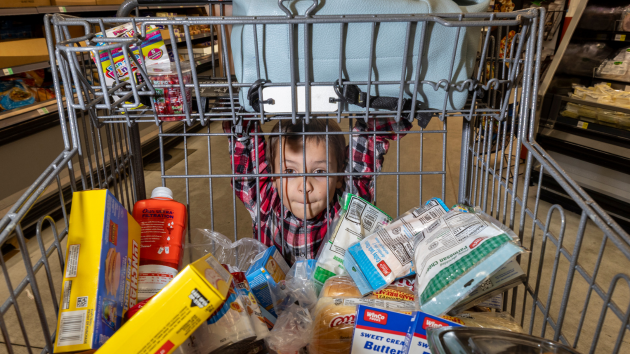Physical and mental health toll on people trapped in war zones as Israel conflict continues
Written by ABC Audio ALL RIGHTS RESERVED on October 10, 2023

(NEW YORK) — As the conflict in Israel moves into its fourth day, thousands of people are caught in the war zone.
Hundreds of Israelis and Palestinians are dead, according to authorities, and more than 5,000 in Israel and Palestine have been injured since Saturday, when the militant group Hamas launched an unprecedented attack from air, land and sea.
Some residents in villages and towns along the Gaza border have been forced to hide in bomb shelters, while others have been evacuated to other parts of Israel and even to neighboring countries.
For those caught in such conflict areas, global health experts and psychologists said there is not only a significant physical toll, but a mental health toll as well.
“When we think about trauma in a war, in a conflict zone, I think it’s important to remember that what war brings is a convergence or a realization of all of our worst nightmares about fears of loss, of our own lives, about the lives of people we love, damage to our bodies, loss of control and also the loss of a familiar anchor in the routine of daily life,” Dr. Steven Marans, a child and adult psychoanalyst and professor at the Yale University Child Study Center, told ABC News. “And so, the symptoms that we see here are really a reflection of some of the tremendous impact that these sudden unanticipated threats and realization of these nightmare scenarios are created in in wartime.”
Impacts to human health
There are physical risks beyond the obvious for people living in war zones, such as breathing in smoke and ash from fires and blasts, which can affect the nose and lungs.
Dr. Ubydul Haque, an assistant professor of global health at Rutgers Global Health Institute, has studied how living in a conflict environment, such as during a war, can affect human health. In his research on the war between Ukraine and Russia, for example, which has been ongoing since February 2022, he found impacts on physical health that, again, may not be obvious at first thought.
“They have no access to medication, food, water, electricity, heating,” he told ABC News. “You know that during the war, their energy infrastructure was destroyed, and our study showed people had cold injuries that might make a lot of them permanently disabled.”
Further, people who suffer illness, malnutrition, injury, or sexual violence in a conflict environment may have trouble getting medical attention if hospitals are taken out of service, he said.
Mental health impact
Research also has shown that people living in war zones are at increased risk of a myriad of mental health issues, including depression, anxiety, post-traumatic stress disorder and more.
Marans said the general public often underestimates the mental health challenges of being caught in a war zone, due to fears such as the possibility of being injured or disabled.
“This is one of the costs of armed conflict,” he said. “Not just the destruction of buildings, not just the loss of lives, which are terrible enough, but also the impact on entire communities of young people and older people, the risks for their subsequent functioning, being able to live happily with greater freedom is significantly jeopardized.”
Dr. Angelica Diaz-Martinez, a teaching professor at Rutgers University’s Graduate School of Applied and Professional Psychology, told ABC News that people respond to trauma in different ways, with some acting more stoic and others unable to regulate their emotions.
She said that for people living in a state of limbo who are “having anxiety about what could happen, what may happen, trying to predict what’s going to happen — those are all things that are going to impact people for a long time, past the trauma.”
What’s more, if adults find it difficult to understand what’s happening and make sense of the conflict, children and teenagers may find it especially difficult.
“There might be some regression with children in terms of, if they were potty trained, they may have accidents,” Diaz-Martinez said. “There might be concerns about people leaving, so they might be a little more clinging, there might be anger or emotional dysregulation.”
Experts add that being in caught in a war zone may be especially difficult for those with pre-existing mental health disorders, making it difficult to access their medication or speak to their doctor,
Even so, Diaz-Martinez and Marans said there is hope that those affected can recover from trauma. Methods include establishing a routine for a sense of normalcy and talking to someone, if possible. Parents should have conversations with their children and listen to any concerns they may have.
Copyright © 2023, ABC Audio. All rights reserved.

 KVSP
KVSP 




